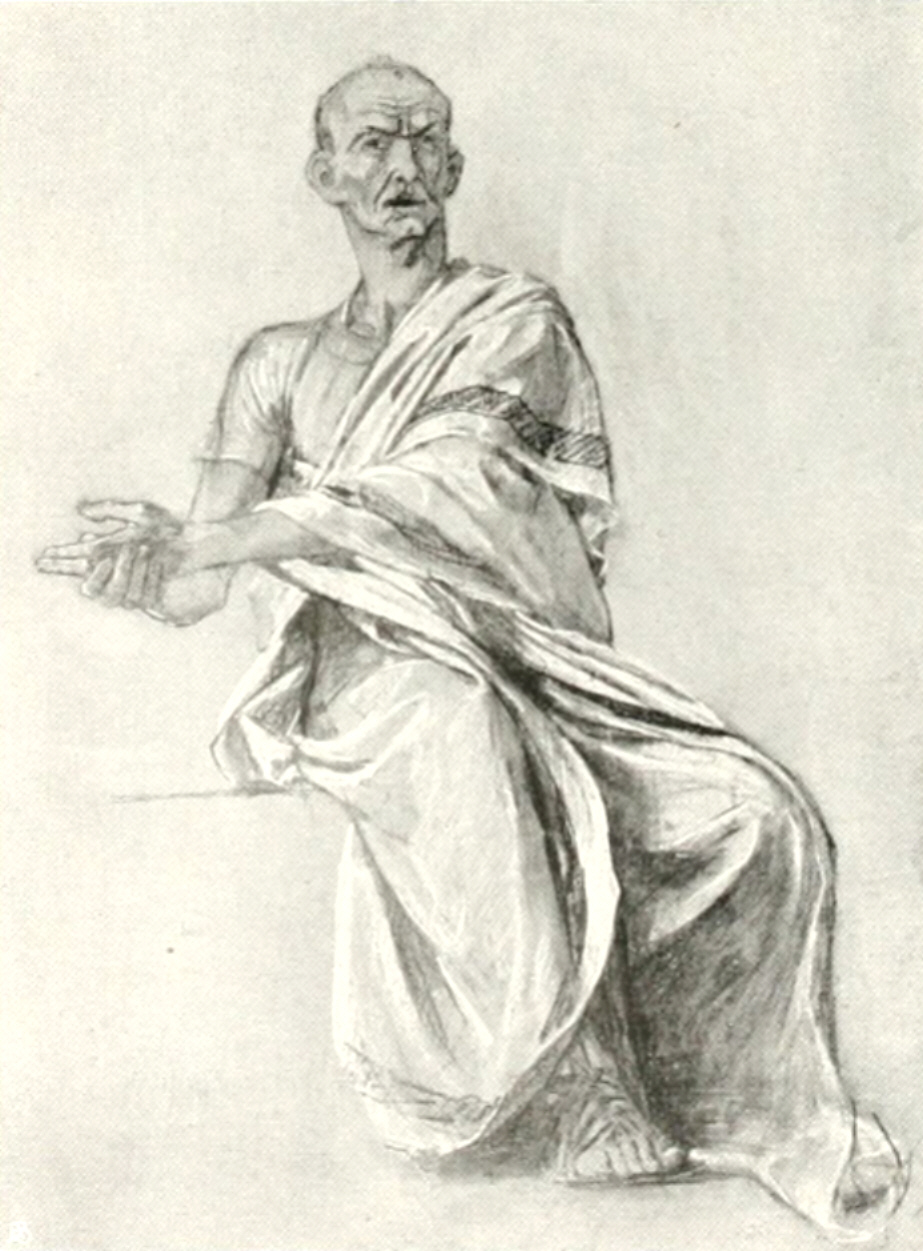Reference links:
Old Testament

Tissot: Moses Blesses Joshua Before the High Priest
Today’s reading consists of a poetic blessing from Moses to the people of Israel. The opening declares the people to belong to God; he is their king.
The bulk of the poem consists of blessings for each of the tribes of Israel. I think the value of this passage lies in its enumeration of the different ways God can bless. The assignment of the blessings to the tribes, while certainly significant, seems secondary to shear variety of forms of blessing.
What ways does Moses claim the Lord will bless the Israelites? He will make sure they do not die out. He will give them strength against their enemies and strike down their foes. He will preserve them from harm. He will bless them with abundant crops. He will bless them at home and in their travels. He will enlarge their territory. He will give them security.
The blessings show that for the ancient Israelites, their relationship with God was a two way street, a covenant where both parties had responsibilities. If the Israelites obeyed God’s commands, then he would give them very concrete blessings in this life. Such a deal-making God is very different from the more distant and spiritualized God of Christianity.
New Testament

Fugel Gebhard: PilatusToday’s reading opens with a peculiar statement:
About this time Jesus was informed that Pilate had murdered some people from Galilee as they were offering sacrifices at the Temple.
What is odd about this statement is that there is no further commentary on the murder itself. Instead, the discussion shifts to the topic of guilt and repentance. This statement seems to present an image of Pilate that is unfamiliar. Generally when one thinks of Pilate, one thinks of him in his role of sending Jesus to his death. In that role, he is generally portrayed as having his hands tied. He is portrayed as someone who does not use his power to prevent Jesus’ death, but who also should not be actively blamed for Jesus’ death. How different that is from the image of Pilate ordering the murder of people as they offered sacrifices.
You may remember from Matthew and Mark how Jesus curses of fig tree because it has not produced fruit. In the earlier versions of the story, Jesus is hungry. He sees a fig tree that is not bearing fruit, and he curses it for its lack of fruit. It then dies. In this fig tree story we read,
Then Jesus told this story: “A man planted a fig tree in his garden and came again and again to see if there was any fruit on it, but he was always disappointed. Finally, he said to his gardener, ‘I’ve waited three years, and there hasn’t been a single fig! Cut it down. It’s just taking up space in the garden.’
“The gardener answered, ‘Sir, give it one more chance. Leave it another year, and I’ll give it special attention and plenty of fertilizer. If we get figs next year, fine. If not, then you can cut it down.’”
This parable only appears in Luke, and the cursing of the fig tree does not appear in Luke. Furthermore, it keeps the element of disappointment in the fig tree’s performance. These elements make me think that this might be a the original myth into something that is more inline with the impression Luke wanted to give of Jesus.
Also, mustard seeds and yeast are still like the Kingdom of Heaven.
Psalms and Proverbs
We finish the historical summary psalm (and get a sneak preview of what’s to come!). God eventually ends his neglect and chooses David to victoriously rule over the Israelites. Hurrah!
Good proverb today,
Worry weighs a person down;
an encouraging word cheers a person up.